

Tao Te Ching
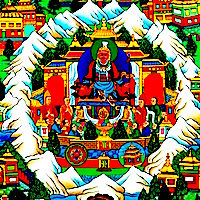
Shambhala
A place, a golden age vision, a spiritual and psychological destination; an extension of spiritual wisdom into culture, politics, philosophy, and business; a hidden, mysterious kingdom of peace and insight; a secular practice for awakened, day-to-day living; an enlightened king and government overcoming corruption and establishing a golden age… the ancient symbolism of Shambhala continues to resonate throughout the world.
Almost every culture may have some form of this symbolism. The shamanistic Bön myth describes the hidden country Olmolungtry, a Hindu myth describes savior-of-the-world Kalki born in a village called Shambhala, the Chinese have Hsi Wang Mu, the Russians Belvodye or “White Waters,” the bygone Scythians had Uttarakuru; the Greeks and Romans the land of Hyperboreans, Plato’s Republic, and the Odyssey; the Mesopotamians had the Gilgamesh epic; Muslims Mahdi, “The Valley of Understanding,” and The Conference of the Birds; Christians the Holy Grail, King Arthur, and Dante’s Divine Comedy; Jews have Messianic prophesies, Exodus, and the Promised Land. And in more modern times, Native Americans have “Warriors of the Rainbow,” Chögyam Trungpa’s secular Buddhism and Bhutan’s “Gross National Happiness” political strategy are spreading throughout the world, and perhaps the modern world’s most common myth, Progress.
In Tibet, the Buddhist tradition ascribes three meanings to Shambhala—externally it was a geographic location where the Buddha taught the Kalachakra Tantra. It was a Central Asian kingdom, the world's spiritual center emanating spiritual energies. The Rigdin Kings of Shambhala wage war against and subdue the Three Lords of Materialism in an effort to liberate humans from their materialistically-inflicted psychological, physical, and spiritual slaveries. Internally, Shambhala represents the Heart Chakra, the symbol for mind in the body-speech-mind description. The secret, esoteric understanding encompasses the idea of Tathagatagarbha—the essence of all things, Buddha-nature.
The idea of a Golden Age has deep roots in Western Civilization: Hesiod is said to have first coined the term in the 8th century BCE and of course there's the Bible's Garden of Eden. Ovid described it as a time without laws, without any kind of compulsion and yet without crime. The 16th century Italian poet, Torquato Tasso described it—not in the more common physical ways—but as a psychological environment free from the external influences of ethics and morality. These traditions all depict the Golden Age as either a long time ago in the past or a long time to go in the future. Shambhala, however, understands it as a spiritual experience always close at hand that we can always access with an awakened kind of awareness.
The mysterious yearnings and wonder invoked into Western culture by books and movies like Nicholas Roerich’s Shambhala - In Search of the New Era in 1930 and James Hilton’s Lost Horizons in 1933 continue a long tradition in the east. Frank Capra’s 1937 movie, Lost Horizons was nominated for 7 academy awards and won 2. Hilton’s continuously popular book became the first novel published in paperback, Pocket Book #1. It inspired Eleanor and Franklin Roosevelt to name the government retreat center Shangri-La (now called Camp David)
A key insight into the development of Shambhala principle involves dissolving the thought/motivation/desire of a reward, Lao Tzu’s Wu Wei. This explains why so many of the prime movers in our biographies were unrecognized during their lifetimes. And even people that were recognized and highly respected like Benjamin Franklin did so much anonymously and without accepting any material or reputation reward. When we have a reward in mind, it corrupts our action, prevents it from having a meaningful impact, and precludes our participation in the creation of a Shambhala world.
Quotes (77)

“When gods alike and mortals rose to birth,
A golden race th' immortals for'd on earth
Of many-languaged men: they lived of old
When Saturn reign'd in heaven, an age of gold.”
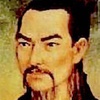
“If but one virtue—mutual love—could be made universal, the strong would not make prey of the weak; the many would not plunder the few, the rich would not insult the poor, the noble would not be insolent to the mean; and the deceitful would not impose upon the simple.”
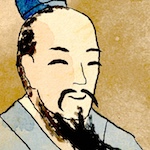
“Like small hills that pile up and become a mountain, like streams that flow into one another and become a great river; the good leader unites all and makes a unified effort and a unified nation possible”
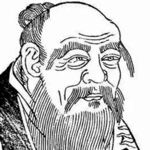
“When sages govern great states, they think of them as small states and are frugal in the use of resources. When the people are many, sages think of them as few and are careful not to exhaust them.”

“God’s Realm won’t come just because you’re watching for it, and neither can people say, ‘Here it is!’ or ‘There it is’, because God’s Realm is actually within you!”

“They are satisfied with their food because they taste the Tao. They are pleased with their clothing because they are adorned with virtue. They are content with their homes because they are content wherever they are.”
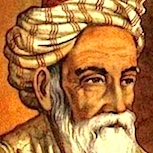
“Although all religions promise paradise, take care to create your own paradise here and now on earth.”

“Love is the crowning grace of humanity, the holiest right of the soul, the golden link which binds us to duty and truth, the redeeming principle that chiefly reconciles the heart to life, and is prophetic of eternal good.”
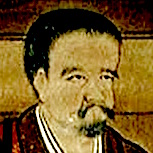
“The Pure Land where one communes at peace is here and now, it's not remote millions and millions of leagues away.”

“You can easily guess that when a man has spent a month in Eldorado he cares to see nothing else in the world but Madame Cunegonde.”
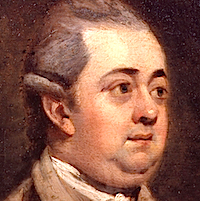
“If a man were called upon to fix the period during which the condition of the human race was most happy and prosperous, he would without hesitation name that which elapsed from the accession of Nerva to the death of Marus Aurelius. Their united reigns are possibly the only period of history in which the happiness of a great people was the sole object of government.”

“If you want Utopian plans, I would say: the only solution to the problem is the despotism of the wise and noble members of a genine aristocracy, a genuine nobility, achieved by mating the most magnanimous men with the cleverest and most gifted women. This proposal constitutes My Utopia and my Platonic Republic.”
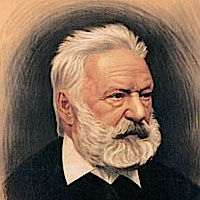
“A day will come when there will be no battlefields, but markets opening to commerce and minds opening to ideas. A day will come when the bullets and bombs are replaced by votes, by universal suffrage, by the venerable arbitration of a great supreme senate which will be to Europe what Parliament is to England, the Diet to Germany, and the Legislative Assembly to France.”

“The worth of a State, in the long run, is the worth of the individuals composing it.”
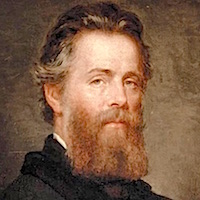
“in the soul of man there lies one insular Tahiti, full of peace and joy… Push not off from that isle, thou canst never return!”

“There is a road steep and thorny, and beset with perils of every kind, but yet a road, and it leads to the heart of the Universe.”
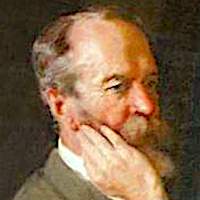
“Why does the painting of any paradise or utopia—in heaven or on earth—awaken such yearnings for nirvana and escape?... lubberlands, pure and simple, one and all.”
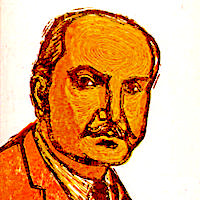
“All that was loved or beautiful at any time, or that shall be so hereafter, all that never was but that ought to have been, lives in that paradise, in the brilliant treasure-house of f the gods.”
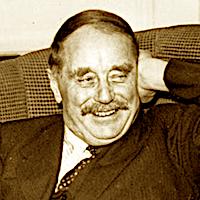
“My idea of politics is an open conspiracy to hurry these tiresome, wasteful, evil things—nationality and war—out of existence; to end this empire and that empire, and set up one Empire of Man.”

“the renewed study of the Greek classics was bringing the creative and fertilizing spirit of Plato to pear upon the Western mind. In England, Sir Thomas More produced a quaint imitation of Plato's Repbulic in his Utopia, setting out a sort of autocratic communism”

“Civilization is a matter of imponderables, of delight in the things of the mind, of love of beauty, of honor, grace, courtesy, delicate feeling. Where imponderables are the things of first importance, there is the height of civilization”

“To rejoice in life, to find the world beautiful and delightful to live in, was a mark of the Greek spirit, which distinguished it from all that had gone before. It is a vital distinction.”
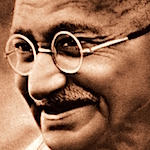
“The most awful tyranny is the proximate Utopia where the last sins are currently being eliminated and where, tomorrow, there will be no more sins because all the sinner will have been wiped out.”
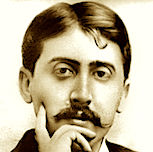
“We dream much of paradise or rather of many paradises in succession, but long before we die they are all lost paradises in which we would feel lost.”

“Every advance in civilization has been denounced as unnatural while is was recent.”

“I have lived in the pursuit of a vision, both personal and social. Personal: to care for what is noble, for what is beautiful, for what is gentle; to allow moments of insight to give wisdom at more mundane times. Social: to see in imagination the society that is to be created, where individuals grow freely, and where hate and greed and envy die because there is nothing to nourish them. These things I believe, and the world, for all its horrors, has left me unshaken”

“I have lived in the pursuit of a vision… to see in imagination the society that is to be created, where individuals grow freely, and where hate and greed and envy die because there is nothing to nourish them.”

“The belief in a happy 'state of nature' in the remote past is derived partly from the biblical narrative of the age of the patriarchs, partly from the classical myth of a golden age. The general belief in the badness of the remote past only came with the doctrine of evolution.”
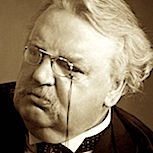
“The man who lives in a small community lives in a much larger world. He knows much more of the fierce variety and uncompromising divergences of men…In a large community, we can choose our companions. In a small community, our companions are chosen for us.”

“it is the tremendous experiment of becoming conscious, which nature has imposed on mankind, uniting the most diverse cultures in a common task.”
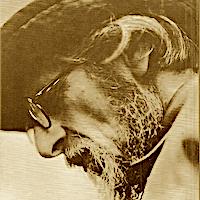
“The building of that city anew—the 'City of the gods'—is the constant task of civilization... to build on the foundations of the religion of Eternity.”

“A New Era has begun, one based on cooperation, equal rights, respect for labor, enlightenment, and on the perception of the beauty of Spiritual Leadership in its myriad manifestations of primal, or psychic energy.”
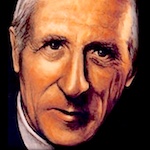
“A new step in the genesis of mind… A new domain of psychical expansion… waiting for us beyond the line where empires are set up against other empires, in an interior totalisation of the world upon itself… a spirit of the earth.”

“One thing only we pursued all our lives: a harsh, carnivorous, indestructible vision—the essence... We're not working for pay, we have no desire for a daily wage. We are warring in the empty air, beyond hope, beyond paradise!”

“Our schools are the open sesame to Utopia... There is nothing that man might not do if our splendid organization of schools and universities were properly developed and properly manned, and directed intelligently to the reconstruction of human character.”

“The true City of God: that fair and pleasant Country of the Mind where all the great dead are still alive, and wisdom makes with beauty an eternal music.”

“Ancient civilizations were little isles in a sea of barbarism, prosperous settlements surrounded by hungry, envious and warlike hunters and herders”
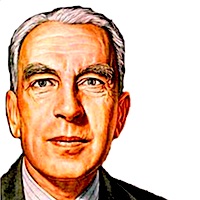
“Man achieves civilization, not as a result of superior biological endowment or geographical environment, but as a response to a challenge in a situation of special difficulty which rouses him to make a hitherto unprecedented effort.”

“Each of our lives is a Shakespearean drama raised to the thousandth degree... Now the arrested are returning, and two Russians stare each other in the eyes: the ones that put them in prison and the ones who were put in prison. A new epoch has begun. You and I will wait for it together.”

“Half a century ago, no one had thought of world food, world health, world education. Many are thinking today of these things. In the midst of possible world war, of wholesale destruction, I find my only question this: are there enough people now who believe? Is there time enough left for the wise to act? It is a contest between ignorance and death, or wisdom and life. My faith in humanity stands firm.”

“...reality, however utopian, is something from which people feel the need of taking pretty frequent holidays.”

“[Recipe for a rising-sun world]: Take twenty sexually satisfied couples and their offspring; add science, intuition and humor in equal quantities; steep in Tantrik Buddhism and simmer indefinitely in an open pan in the open air over a brisk flame of affection.”
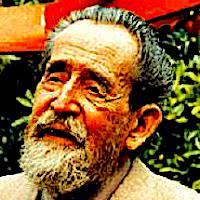
“The Golden Age is an age of innocence and bliss; for to live wholly within the limits and cyclic boundaries of one’s own wholeness is true innocence and bliss… tragedy coming only as one attempts to go beyond these boundaries”

“Gatsby believed in the green light, the orgastic future that year by year recedes before us. It eluded us then, but that's no matter—tomorrow we will run faster, stretch out our arms farther... And one fine morning—”
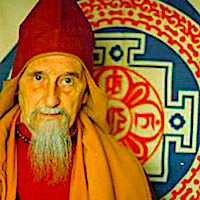
“Just as lower organisms serve as building materials for higher ones, so also the stored-up experiences of the subconscious serve the higher purposes of the mind... provided the aim, or the idea that inspired us, was wide enough to include a future beyond the span of one lifetime.”
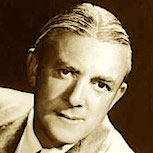
“But pretense was impossible. There was a quality in the air of Shangri-La that forbade one the effort of counterfeit emotion.”

“If I could put it into a very few words, I should say that our prevalent belief is in moderation. We inculcate the virtue of avoiding excesses of all kinds—even including, if you will pardon the paradox, excess of virtue itself.”
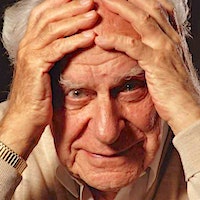
“The belief in a political Utopia is especially dangerous. This is possibly connected with the fact that the search for a better world, like the investigation of our environment, is one of the oldest and most important of all the instincts.”

“The coming Buddha, known as 'The Great Loving One,'... The gesture of Setting in Motion the Wheel of the Law symbolizes what he will do when he comes to restore the purity of the Buddha's teachings.”

“adapt the work to the needs of the worker rather than demand that the worker adapt himself to the needs of the work”
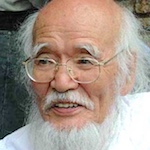
“If one were to build a home in the wild away from such concerns, and restore about one a rish natural area, this would surely become the paradise of natural people of non-action.”

“While you sit watching pictures on your color TV set, I stand gazing at ripples in a moonlit pond, thanking the gods for not interrupting with commercials.”

“Once our technology is no longer polluting our environment and used primarily for killing people, it can be used to create an economy of abundance. Such an economy no longer requires us to be individual, group, race, national, ethnic, religious or gender enemies of each other because there will be plenty of everything for every one of us on the planet. Given our present technology, starvation and deprivation are artificially maintained.”
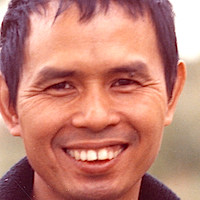
“We need enlightenment, not just individually but collectively, to save the planet. We need to awaken ourselves. We need to practice mindfulness if we want to have a future, if we want to save ourselves and the planet.”
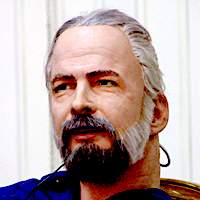
“Even if all life on our planet is destroyed, there must be other life somewhere which we know nothing of. It is impossible that ours is the only world; there must be world after world unseen by us, in some region or dimension that we simply do not perceive.”

“You can best serve civilization by being against what usually passes for it.”

“Times of great change and remarkable opportunity are upon us. To succeed we can no longer go it alone, but must partner with one another to share innovative and creative ways in which to rethink and restructure our individual existence within the context of our expanding global communities.”
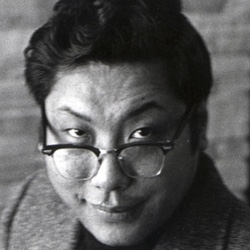
“[The Shambhala teachings are] a manual for people who have lost the principles of sacredness, dignity, and warriorship in their lives.”

“The esoteric meaning of Shambhala is Tathagatagarbha, Buddha-nature, which is the essence of all things. It transcends existence and non-existence and is the ground of both samsara and nirvana.”

“Gaviotas is not a community that can be replicated. What needs to be replicated is the Gaviotas way of thinking.”
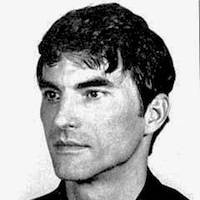
“the grand vision of halcyon, an ideal society guided by wisdom in with all people and all things equally find their places in an organic whole, where they can express their individualities and exercise their particular abilities to the greater good of one and all”
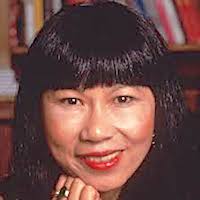
“The most interesting aspect to me is the other Shangri-La alluded to in Lost Horizon, a state of mind, one of moderation and acceptance.”
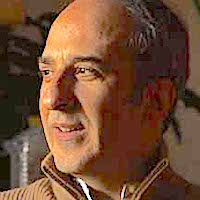
“always there are people who know how to gather the essence of life and hold it safely, protect it and nurture it until the next seeding”
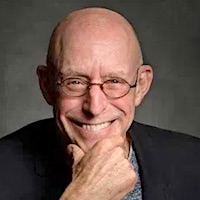
“Tree planting is always a utopian enterprise, it seems to me, a wager on a future the planter doesn't necessarily expect to witness.”


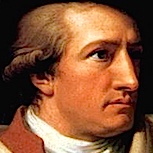


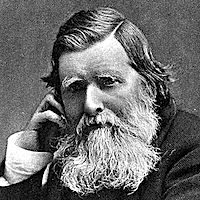
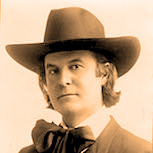
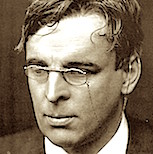

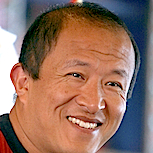
Comments (0)